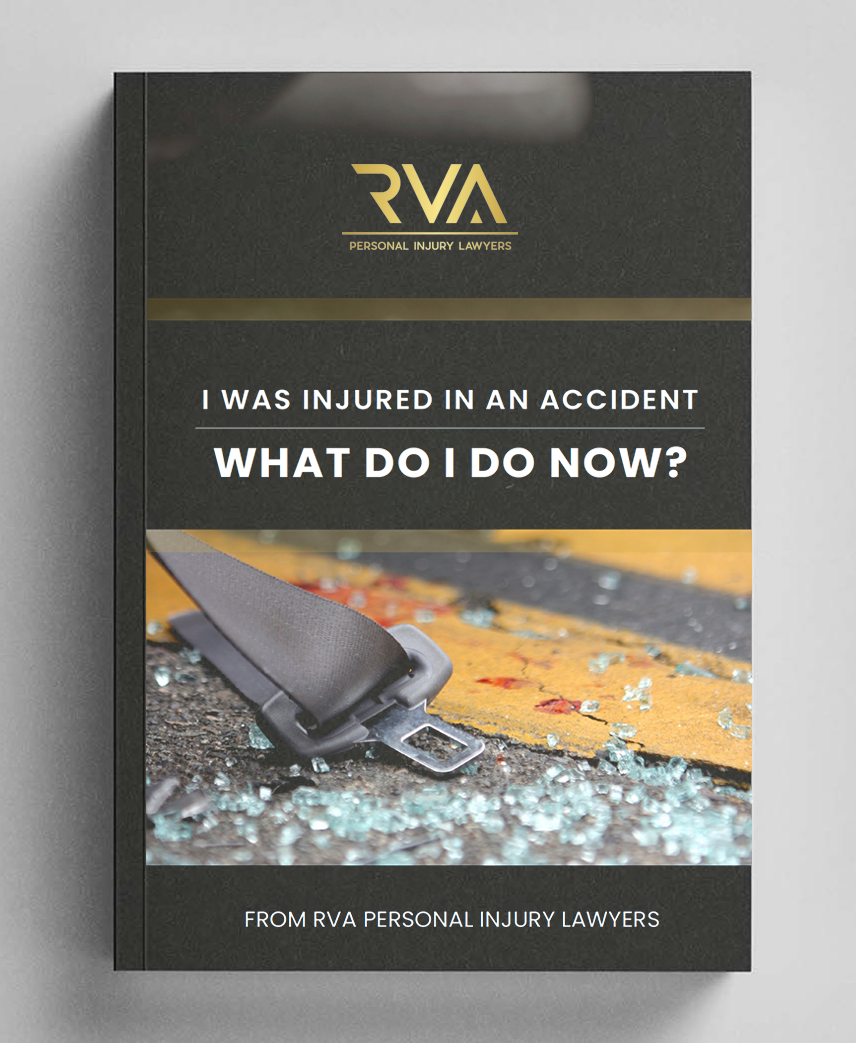
Virginia Federal Tort Claims Act Lawyer
If you’ve been injured due to the negligence of a federal employee, you may be eligible to seek compensation under the Federal Tort Claims Act (FTCA). Whether your claim involves an employee of the government, or focuses more so on events that happened on federal government property, our FTCA lawyers are here to help.
Continue reading to learn the ins and outs of these special claims, including what they are, who’s eligible to file, exceptions, and more.
If you have suffered injuries because of someone else’s negligence, Sharif Gray at Broughton Injury Law can help. We have won millions of dollars in verdicts and settlements. Call Sharif at (804) 915-1611 or contact him online to schedule a free consultation. We will get justice for you.
Table of Contents
ToggleUnderstanding The Federal Tort Claims Act in Virginia
The Federal Tort Claims Act (FTCA) provides a legal framework for individuals to seek compensation for injuries, property damage, or loss that was caused by the negligent or wrongful act or omission of a federal government employee.
This act is pivotal because it essentially provides one of the only pathways for those who’ve suffered injuries or had his or her property damaged by a government employee to recoup damages . If not for this legislation, there’d be no way to sue the government as “sovereign immunity” would prevent it.
Under the FTCA, claims can range from medical malpractice by active duty military personnel at a military medical facility to very serious car accidents involving a government vehicle. Given the ultra complex and nuanced nature of federal law coupled with the highly unique challenges of suing a federal government agency – An experienced Virginia tort claims act attorney can be absolutely instrumental in navigating these kinds of claims.
History of the Federal Tort Claims Act
Before the FTCA was enacted in 1946, there was no legal method of filing a claim against or suing the government. With its passage, it allowed private parties (i.e., individuals, businesses, other government entities, etc.) to seek compensation from the United States government.
This was an incredibly transformative development in U.S. law, acknowledging that, yes, the government could actually be held liable for the actions of its employees, similar to any other private individual or entity. This Act opened the doors and leveled the playing field for personal injury and property damage claims resulting from government employee negligence.
How To Use The FTCA After An Injury
If you’ve suffered an injury due to a federal employee acting negligently while working within the scope of their official duties, the FTCA provides a clear (albeit complicated) pathway to seek restitution for your damages.
This process starts with your lawyer filing an administrative claim with the appropriate federal agency. At this step, it’s crucial to accurately depict every single detail of the circumstances and the damages you’re seeking. Suppose it’s an FTCA claim involving individuals in the armed forces or active duty service members. In that case, it’s likely that additional complexities will crop up, calling for the guidance of a federal tort claims act attorney.
In the case an administrative settlement (that both parties agree to) can’t be reached or the claim is denied, the next step typically involves taking legal action in a federal court. Not only does this require an intimate understanding of the nuances of the FTCA, but also necessitates knowing how federal government agency procedures and policies might impact your case. It’s absolutely vital to have an attorney with expertise in federal law and experience in handling federal tort claims.
Our Virginia personal injury attorneys are here to walk you through the FTCA process step-by-step, ensuring your claim form accurately captures the details of your case.
What Are The Requirements For a Federal Tort Claim?
An FTCA claim requires the injured person to prove that a federal employee’s negligence directly caused their injury and/or property damages. But first, you’ll need to establish that the federal government employee in question was acting within the scope of their official duties when the negligent or wrongful act or omission occurred – Which isn’t an exactly cut-and-dry process.
Essentially, you and your attorney will be tasked with proving that the injury or damage was directly caused by the employee’s actions and that the employee in question was not an independent contractor at the time of the event.
Filing the Claim With The Right Federal Government Agency
Furthermore, the claim must be presented to the appropriate federal government agency for an administrative settlement before pursuing a FTCA lawsuit in court. That includes completing a Standard Form 95 and providing highly detailed information about the claim, including the extent of your injury and/or damage to property. It’s important to note that premises liability claims, often seen in cases involving injuries on federal property, must also follow this protocol.
Successfully navigating the choppy seas of FTCA claims demands a valid claim that’s supported by solid evidence presented by your tort claims act attorney. Not only do these professionals understand the ins and outs of cases involving federal government employees – But, they’re also incredibly adept at arguing cases in the Supreme Court and lower federal courts, ensuring the best possible outcome for your claim.
Exceptions to the Federal Tort Claims Act
While the Federal Tort Claims Act (FTCA) offers a route for individuals to seek compensation for harm caused by federal government employees, it’s important to understand that there are notable exceptions to this act.
These exceptions define scenarios where the FTCA does not apply, and thus, the federal government retains its sovereign immunity against certain types of lawsuits. Understanding these exceptions is crucial for anyone considering an FTCA claim.

Deadlines For Filing a Claim
If you want to file a tort claim against a federal agency, you’ll need to keep an eye on the statute of limitations which typically expires within two years of the injury. Most FTCA claims attorneys recommend moving fast, because missing this deadline can (and most likely will) result in losing the right to seek compensation.
We’re here to ensure you meet every single deadline while we advocate for your right to fair compensation. Contact us today to discuss the details of your claim.
Is There a Cap On Damages For Federal Tort Claims?
Unlike some state laws, the Federal Tort Claims Act doesn’t impose a cap on money damages – Which means you can seek full compensation for all of your losses, including medical expenses, lost wages, and pain and suffering. However, it’s important to note that punitive damages aren’t available under the FTCA.
What To Expect After You’ve Filed an FTCA
Once your attorney has filed an administrative claim with the appropriate government agency, you may enter into settlement negotiations. However, if for some reason, your claim is denied or a settlement can’t be reached for the negligent act, you’ll still have the option to file a lawsuit in the United States District Court.
Our experienced federal tort attorneys are experienced and ready to negotiate administrative settlements, and if needed, represent you in federal court proceedings.
Can I Still File a Claim For Injuries That Happen Outside The U.S.?
Claims under the FTCA are typically limited to specific incidents that happened within the borders of the United States. However, there are exceptions. Under certain military claims that involve U.S. military personnel or federal law enforcement officers who are stationed in a foreign country may be eligible for an FTCA claim. Otherwise, the Military Claims Act and other forms of legislation may be able to address their claims.
As you can imagine, these types of cases usually require an incredibly intricate understanding of both domestic, international, and FTCA legal principles.
Common Examples of FTCA Claims
FTCA claims include injuries sustained at a federal courthouse or military hospital, accidents involving postal service vehicles, and incidents at veterans administration facilities – But they don’t stop there. Here are a few more examples of the most common FTCA claims:
- Medical malpractice by healthcare professionals in federal hospitals or clinics.
- Accidents involving vehicles operated by federal government employees.
- Slip and fall incidents on federal government property.
- Wrongful death cases resulting from federal employee negligence.
- Personal injury claims due to negligent maintenance of federal facilities.
- Property damage caused by federal agencies or their employees.
- Injuries sustained from federal law enforcement activities.
- Environmental damage claims due to federal government actions.
Each type of claim presents unique challenges, particularly when proving the link between the federal employee’s actions and the claimant’s injuries.
Work With a Trusted Federal Tort Attorney in VA
Navigating the intricacies and processes involved in filing an FTCA claim requires highly specialized legal expertise. We have the experience and dedication needed to seek maximum compensation from the federal government, from evaluating the alleged negligence of federal employees to representing you in federal court.
We’ll be here for you from the beginning all the way until the conclusion of your case. Contact us today to schedule for free consultation with a proven law firm for FTCA claims in Virginia.
“We Get Justice For Injured People In Court, and We Love What We Do”
We are not settlement lawyers. Sharif Gray has proven that he can and will get results in court, and the insurance companies know that. If you have suffered injuries because of someone else’s negligence, we can help.
Sharif Gray is committed to trying cases well. Because of that, he does not handle hundreds of cases at a time. He is selective in the cases he takes so he can get justice for the people he represents. In every case, he has three goals:
- Hold the responsible corporation or individual fully accountable.
- Make the community safer, so others are not also harmed.
- Compensation that recognizes the full and fair value of what was taken from your health and quality of life.
We love what we do, and we are proud of the positive impact we have had and will continue to have on the people we represent and the community we live in.
If we can be of help to you, please do not hesitate to call us at (804) 915-1611 or contact us online to schedule a free consultation. We will get justice for you.
$10,000,000
Defendant, while racing on a residential road, crashed into an oncoming driver causing catastrophic injuries.
$9,000,000
Defendant failed to properly secure a display at its store which led to it falling on a child causing life altering injuries.
$1,500,000
Defendant failed to keep the entrance of its store safe for the public causing significant injuries.

Contact Form
Trucking Accident Lawyer Near You
Top 10 Most Common Car Accident Injuries and How to Treat Them
Richmond Motorcycle Accident Lawyer
Car Accident Settlement: How Long Does It Take?
Top Reasons to Hire a Car Insurance Claim Lawyer After an Accident
Frequently Asked Questions
For answers specific to your case, please call Sharif Gray with Broughton Injury Law at (804) 915-1611, schedule a free consultation, or click the button below to send him a message.
The statute of limitations is two years for most personal injury, medical malpractice, and wrongful death cases in Virginia.
For most cases, you must file a lawsuit within that time frame. But there are exceptions (e.g., for minors).
Most personal injury cases settle without having to go to trial, but it depends on a number of things such as the strength of evidence, how willing the insurance company is to negotiate in good faith, and the client’s goals.
Even when a settlement is likely, it is best to prepare for trial, because a trial-ready case often leads to better settlements. That is why we prepare every case for trial, even though most cases settle.
In Virginia, the jury considers the following factors when deciding the amount of a verdict:
(1) Any bodily injuries sustained and their effect on health according to their degree and probable duration;
(2) Any physical pain and mental anguish suffered in the past and any that may be reasonably expected to suffer in the future;
(3) Any disfigurement or deformity and any associated humiliation or embarrassment suffered in the past and any that may be reasonably expected to suffer in the future;
(4) Any inconvenience caused in the past and any that probably will be caused in the future;
(5) Any medical expenses incurred in the past and any that may be reasonably expected to occur in the future;
(6) Any earnings lost because of being unable to work at their calling;
(7) Any loss of earnings and lessening of earning capacity, or either, that may reasonably be expected to sustain in the future; and
(8) Any property damage sustained.
Virginia Model Jury Instruction No. 9.000: General Personal Injury and Property Damage
There is no cap on damages in most personal injury cases. But there is a cap on damages in medical malpractice cases.
There is also a cap on punitive damages.
Your personal injury lawyer should pursue the full and fair value of what was taken from your health and quality of life.
Sharif Gray at Broughton Injury Law has won millions of dollars in verdicts and settlements, and he is known for taking cases to trial.
Sharif is not a settlement lawyer. He is committed to trying cases well. Because of that, he does not handle hundreds of cases at a time. He is selective in the cases he takes so he can get justice for the people he represents.
